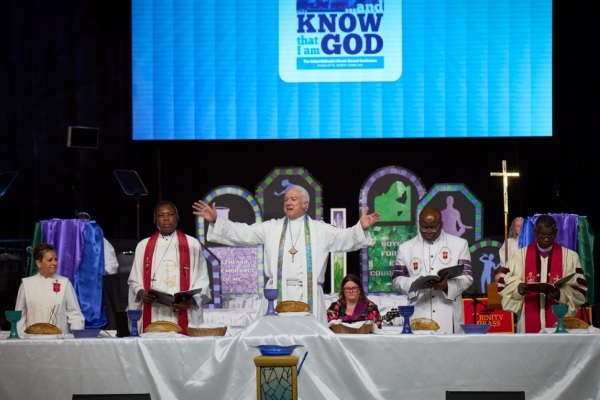Vanderbilt's Nondiscrimination Policy May Discriminate Against Religious Groups
Four Christian student organizations at Vanderbilt University have been put on “provisional status” for saying that the leaders of each of their respective groups are required to submit to their group's religious beliefs, a qualification the university has said is not in compliance with its nondiscrimination policy.
An email sent to the chapter president of the Christian Legal Society from the school's Office of Religious Life stated that the group cannot “preclude someone from a leadership position based on religious belief. Only performance-based criteria may be used.”
The email also said that the group cannot expect its officers to lead Bible studies, prayer or worship at chapter meetings.
“This would seem to indicate that officers are expected to hold certain beliefs. Again, Vanderbilt policies do not allow this expectation/qualification for officers,” the email said.
A number of different organizations have now come to the defense of the CLS and other religious groups awaiting approval from the school.
A letter from Kim Colby, senior counsel for the CLS, to the school's chancellor, Nicholas Zeppos, explained the situation and made a case in support of the groups.
The letter stated that the constitutions of the religious organizations in question, which “have long been registered groups at Vanderbilt,” were deferred in April 2011. On June 1, the organizations resubmitted their constitutions for approval, but were deferred yet again on Aug. 10.
“Of course, it is wrong for nonreligious groups to consider a person’s faith in their leadership decisions ... But a religious group, by definition, forms around specific religious beliefs, and for that reason must take into account its leaders’ commitment to those religious beliefs if the group is to maintain its distinctive religious identity,” Colby wrote.
She also said the CLS is “confident” the school will continue to protect religious groups, and that doing so actually “furthers the basic goals of the University's nondiscrimination policy.”
The American Family Association is also supporting the groups and is encouraging others to email their own letters of support to Zeppos.
“Carried to its full extent,” says a post on AFA's website, “it means an atheist could lead a Christian group, a man a woman's group, a Jew a Muslim group or vice versa.”
Patricia Helland, associate dean of strategic initiatives and assessment for the university, told Inside Vandy, the school’s newspaper, the school has backed away from its initial position following the organizations' feedback, but the has not yet made its final decision.
“People have come back to us and said ‘What do you mean? This is faith-based. This is our values. If we change that, we are not who we are,’ and what we’ve done is we’ve listened,” she said. “We are looking at what all the issues are to make a decision.”
Helland also said that no group has been denied student organization status yet, and the groups that have been given provisional status can operate as they would normally while they await the school's verdict.
Vanderbilt University did not respond to The Christian Post's request for updated information on this issue by the time this article was published.





















